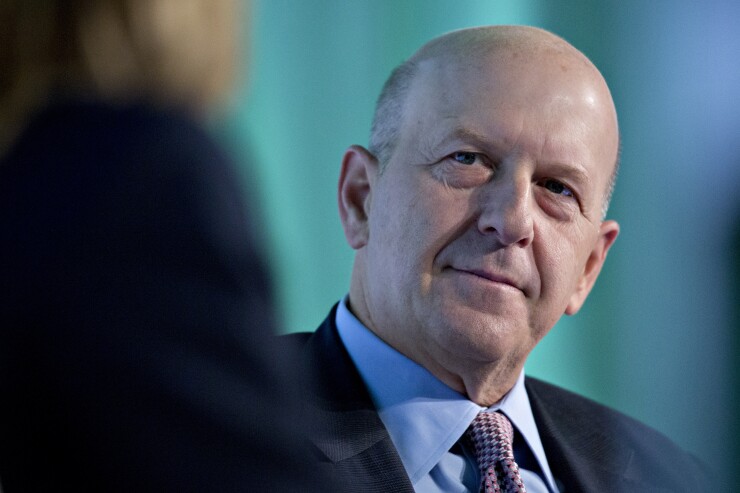Want unlimited access to top ideas and insights?
Goldman Sachs is eyeing wealth management for the mass affluent as part of the continuing expansion of its nascent consumer banking business.
Currently in the early stages of development, Goldman’s investment platform will likely include both digital capabilities and the ability to interact with human beings, Chief Financial Officer Stephen Scherr said Monday.
The announcement represents the latest example of the Wall Street giant looking for growth opportunities outside of its traditional base of ultrawealthy and corporate clients. The mass affluent segment refers to U.S. households with assets that, while substantial, fall short of the levels necessary to be classified as high net worth.
“This is a very large market, with $9 trillion in mass affluent customer assets across more than 20 million U.S. households,” Scherr said during the company’s quarterly earnings call.

Goldman’s wealth management offering will be part of Marcus, the consumer banking platform that the New York bank launched in 2016. U.S. consumers currently use that platform to make deposits and get personal loans. A credit card that will be integrated with Apple’s iPhone is expected to be launched this summer.
Goldman Sachs indicated Monday that its strategy in the mass affluent wealth management business will be built around partnerships with employers. Since 2003, Goldman has owned Ayco, which works with companies to offer financial counseling to corporate executives.
Scherr noted that Ayco has relationships with 60 companies in the Fortune 100, as well as 220 of the top 1,000. “Ayco has the potential to carry us deep into these organizations to facilitate the growth of meaningful mass affluent business,” he added.
Goldman has established
Cupertino, Calif.-based Apple announced plans to launch
The Apple partnership and the wealth management offering for the mass affluent share certain elements with other major strategic growth initiatives at Goldman, CEO David Solomon said Monday.
“These elements include: reimagined products that address pain points for corporations, institutions and consumers; new technology unburdened by legacy systems that often slow down innovation; digital delivery mechanisms that produce scale and efficiency; and access to large customer populations,” Solomon said.
Goldman reported net earnings of $2.25 billion in the first quarter, down from $2.83 billion in the same period a year earlier.





